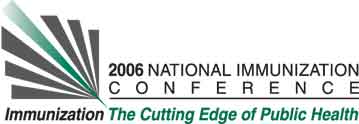Salman Baghian1, Dale Marioneaux
1, Glenn N. Jones
1, Ronald Horswell
2, Kim Nguyen
1, and William M. Cassidy
1. (1) Department of Medicine/Earl K. Long Medical Center, Louisiana State University Health Sciences Center, 5825 Airline Highway, Baton Rouge, LA, USA, (2) Research, Pennington Biomedical Research Center, Baton Rouge, LA, USA
Learning Objectives for this Presentation:
By the end of this presentation participants will be able to:
1. Utilize a new approach to immunizations in emergency departments
2. Explore new strategies for screening of blood borne infectious diseases
3. Maximize screening efforts for vaccination and infectious disease testing
Background:
The ACIP recommends HBV vaccination of adults with risk factors. HIV, syphilis, and HCV share risk factors with HBV, therefore, screening for all four maximizes preventive disease screening while minimizing personnel time required. Barriers to routine screening include nurse and physician time. Our previous work demonstrated that paraprofessionals could use screening forms to screen for vaccine preventable diseases in the emergency department (ED).
Setting:
A public hospital emergency department in Baton Rouge, La.
Population:
Patients 18-54 in acute care setting of ED capable of informed consent.
Project Description:
Using an HBV vaccine information statement (VIS), a paraprofessional approached patients to discuss HBV, vaccination, and assess risk for infection. Patients that acknowledged risk were counseled and offered testing for HIV, syphilis, and HCV. Patients that denied HBV risk factors but requested testing were also tested. The paraprofessional administered OraQuick Advance HIV rapid tests and provided results and counseling before discharge. Orders for vaccine and/or testing were reviewed and signed by physicians. ED nurses administered vaccine and drew blood for VDRL and HCV antibody. Test results were added to medical records and patients received an immunization card. Test result notification and dose follow-up scheduling were conducted by telephone.
Results/Lessons Learned:
In patients acknowledging HBV risk, nearly 100% accepted HIV testing. Preliminary screening for HBV risk factors reduced counseling time so that risk assessment and counseling averaged 5-10 minutes. All requests for blood draw and vaccination were executed. Results demonstrate that HBV screening is an effective surrogate-screening tool for other blood borne infectious diseases.
See more of Posters
See more of The 40th National Immunization Conference (NIC)

